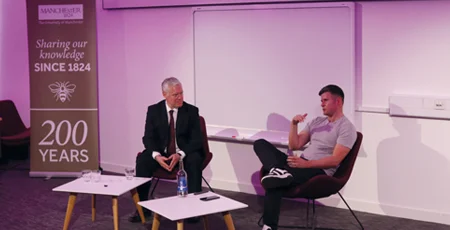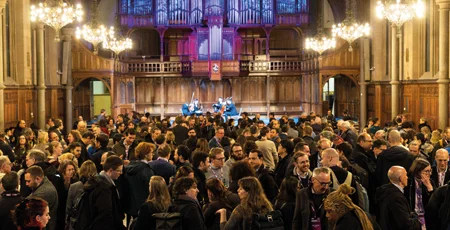Knowledge catalyst
Aiming to achieve net zero
AMBS is a partner in a major project exploring the role that universities and research institutions can play in helping achieve net zero goals. Mabel Sanchez Barrioluengo, Elvira Uyarra and Matt Ziembla explain more.
When it comes to addressing grand societal challenges, one of the major issues for cities has always been how to embed policy approaches and 'missions' that are set at government level into specific local action and policy.
This challenge is particularly acute in terms of mitigating the effects of climate change and achieving net zero targets.
For instance, at the moment we see a lot of experimentation across cities in terms of climate mitigation, but projects are often fragmented, lack long term funding, and can be hard to scale up.
Europe wide study
Addressing this challenge is the starting point for a major Horizon Europe project looking at how knowledge institutions—such as universities and research centres—can help 'catalyse' local action to achieve the EU mission for 100 climate neutral and smart cities by 2030.
The €2m Horizon Europe project brings together four main academic partners.
As well as academics from the University of Manchester (Elvira Uyarra, Mabel Sanchez-Barrioluengo, Matt Ziembla, James Evans), they include the Austrian Institute of Technology, the German Fraunhofer Institute for Systems and Innovation Research, and the Erasmus University Rotterdam.
By partnering with each city region and local government (Greater Manchester, Vienna, Leipzig and Rotterdam) researchers will specifically look at how local needs are responding to the climate challenge in their city. These learnings in each city will then be brought together into a broader analysis of the challenges faced.
Overarching aim
The overarching aims of the three-year project, which starts in September this year, are to:
- Enhance co-operation by connecting city administration and knowledge institutions
- Enhance social innovation to scale up impact
- Drive transformative change in the green innovation space.
A key focus will be on the different roles that knowledge institutions take in each of the four cities. Among the key questions we will be asking are:
- How can we scale up climate change mitigation policies to create better outcomes?
- How can local authorities understand what tackling grand challenges means for them?
- And what are the opportunities for 'transdisciplinary' initiatives whereby universities work with external organisations?
Partners
As part of the project we will work specifically with the Greater Manchester Combined Authority (GMCA) on its ongoing 'Clean Growth Mission.'
Launched in 2019, this mission mobilises local communities and businesses around the 2038 carbon-neutral target of Greater Manchester that links the global climate change problem with local challenges and provides justification for scaling up local change efforts.
The project also links in with The University of Manchester's ongoing 2035 strategy. This sets out how the university intends to become an ever more important player in terms of driving forward economic growth and social equality across the city region. Specifically, we will investigate where The University of Manchester can support the net zero target.
Long-term view
It's clear that mission-oriented policies have the potential to provide strategic political leadership with a long-term view. Knowledge institutions will play a critical role in supporting missions and innovation ecosystems in the future.
This project will connect with real climate challenges across Greater Manchester and beyond. It gives us a unique chance to demonstrate how universities can become active catalysts for urban climate solutions, through cross-disciplinary research and engagement with external stakeholders.
In short, this is a fantastic opportunity for Manchester Institute of Innovation Research here at AMBS to build upon established collaborations with European partners and the GMCA.
Additionally, we can forge new connections with other academic and practitioner organisations, and strengthen our presence in European research.






